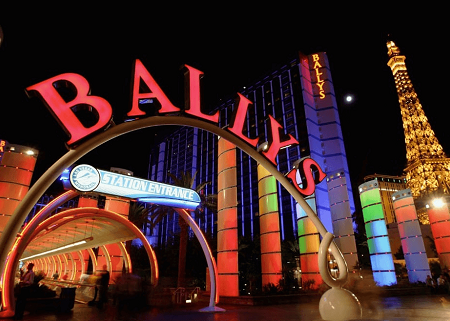Detroit, the largest city in Michigan, is home to three major casinos: MGM Grand Detroit, MotorCity and Hollywood Casino at Greektown. These casinos employ about 3,700 workers, who are represented by the Detroit Casino Council (DCC), a coalition of five unions.
The DCC and the casino operators have been in negotiations for a new five-year contract since September, but they have yet to reach an agreement by the deadline of October 17, 2023. As a result, the casino workers went on strike, demanding better pay, benefits, and working conditions.
The strike lasted for more than a month, affecting the casino operations, the city’s tax revenue, and the local economy. However, on November 17, 2023, the DCC and the casinos announced that they had reached a tentative deal that could end the strike, pending ratification by the union members.

Strike Background
The casino workers in Detroit have been working under the same contract since 2018, which expired on October 17, 2023. The DCC and the casinos had been bargaining for a new contract since September. Still, they needed help to resolve their differences on several key issues, such as wages, health care, retirement, job security, and workload. The DCC claimed that the casino workers deserved a fair share of the profits that the casinos had made in recent years, especially after the COVID-19 pandemic, which reduced the workforce and increased the workload for the remaining employees. The DCC also argued that casino workers needed a higher wage to keep up with the rising cost of living and inflation, which had surged globally in 2023.
The casino operators, on the other hand, maintained that they had offered the casino workers a generous and competitive package, which included the largest single-day increase in the history of the MGM Grand Detroit.
When the contract expired on October 17, 2023, the casino workers decided to go on strike after a 99% vote in favor of the strike authorization. The strike affected the Hollywood Casino at Greektown, MGM Grand Detroit, and MotorCity Casino Hotel, which are the three largest casinos in Detroit, accounting for about 90% of the city’s gaming revenue. The strike involved about 3,700 workers, including dealers, cleaning staff, valets, food staff, and others, who are members of the UNITE HERE Local 24, the United Auto Workers (UAW), Teamsters Local 1038, Operating Engineers Local 324, and the Michigan Regional Council of Carpenters.
This strike also drew attention and support from various groups and individuals, such as politicians, celebrities, labor leaders, and community activists. Some of the notable supporters of the strike included U.S. Representative Rashida Tlaib, who represents Detroit in Congress; U.S. Senator Bernie Sanders, who is a prominent progressive leader; Reverend Jesse Jackson, who is a civil rights activist; and Danny Glover, who is an actor and a labor advocate. The supporters of the strike visited the picket lines, spoke at rallies, and expressed their solidarity with the casino workers on social media.
Tentative Deal
After more than a month of striking, the DCC and the casinos announced on November 17, 2023, that they had reached a tentative deal that could end the strike, pending ratification by the union members. The details of the deal were not disclosed, but the DCC and the casinos said that the deal was fair and balanced and that it addressed the main concerns of both sides. The DCC and the Detroit casinos also said that the deal was a result of hard work, good faith, and compromise from both parties.
The tentative deal was welcomed by the casino workers, who said that they were hopeful that the union members would ratify the deal. The casino workers also said that they were proud and grateful for the support and solidarity that they had received from the public and their allies during the strike. The casino workers said that they were ready to return to work and serve their customers once the deal was approved.
The tentative deal was expected to be ratified by the union members within a week, after which the casino workers would end the strike and return to work. This tentative deal was seen as a victory and a milestone for the casino workers, who had fought for a fair and dignified contract, and for the casinos, who had managed to reach a deal that would allow them to continue their business and growth. The tentative deal was also seen as a sign of hope and resilience for the city of Detroit, which had overcome many challenges and difficulties in the past and had shown its strength and spirit in the face of adversity.









